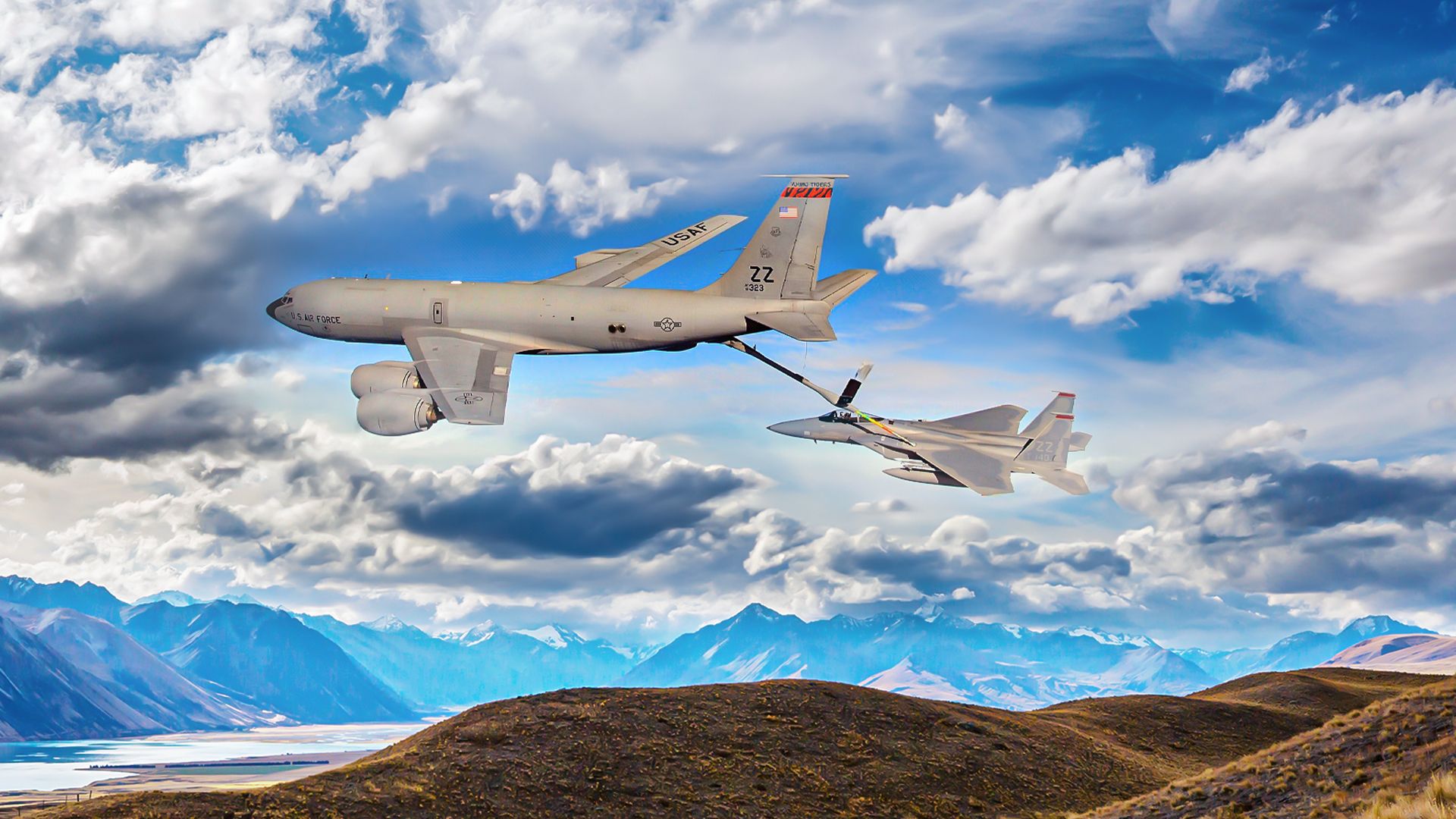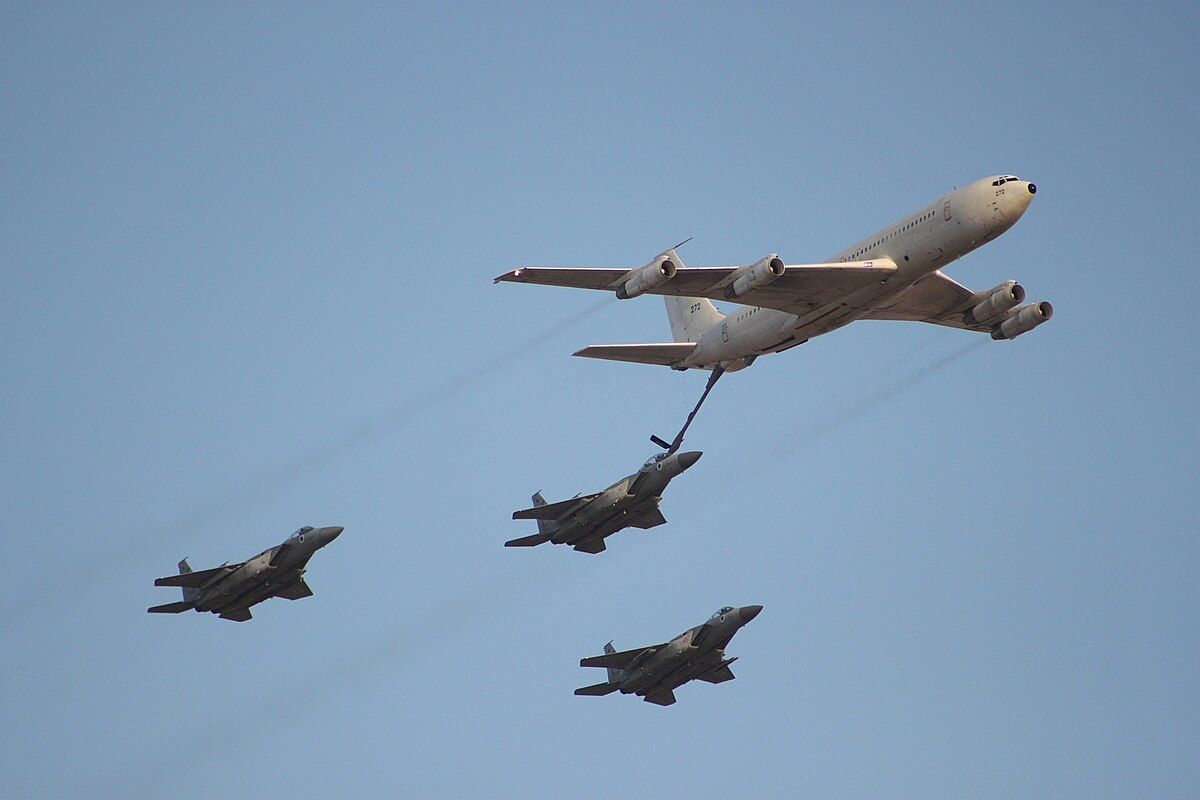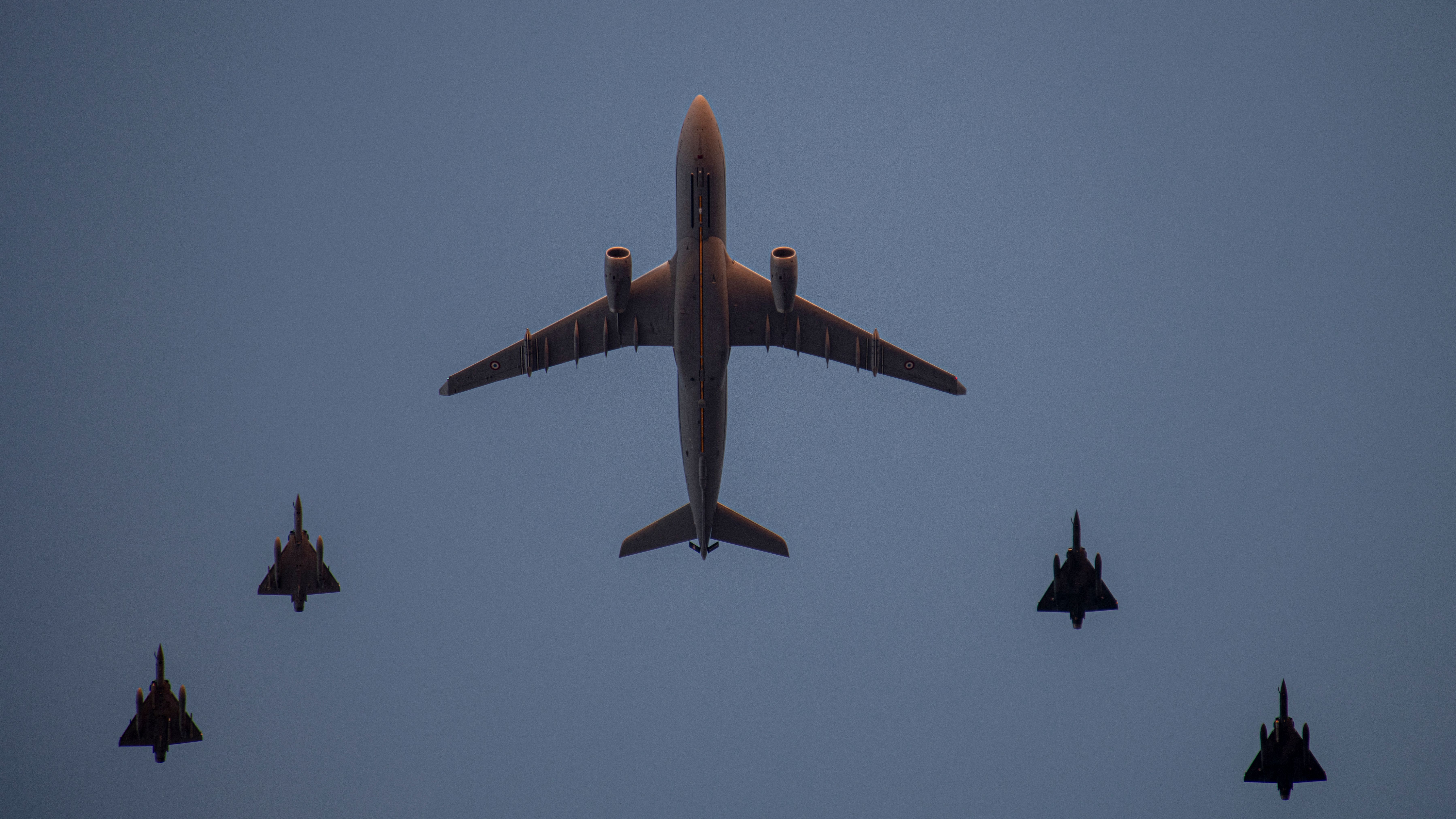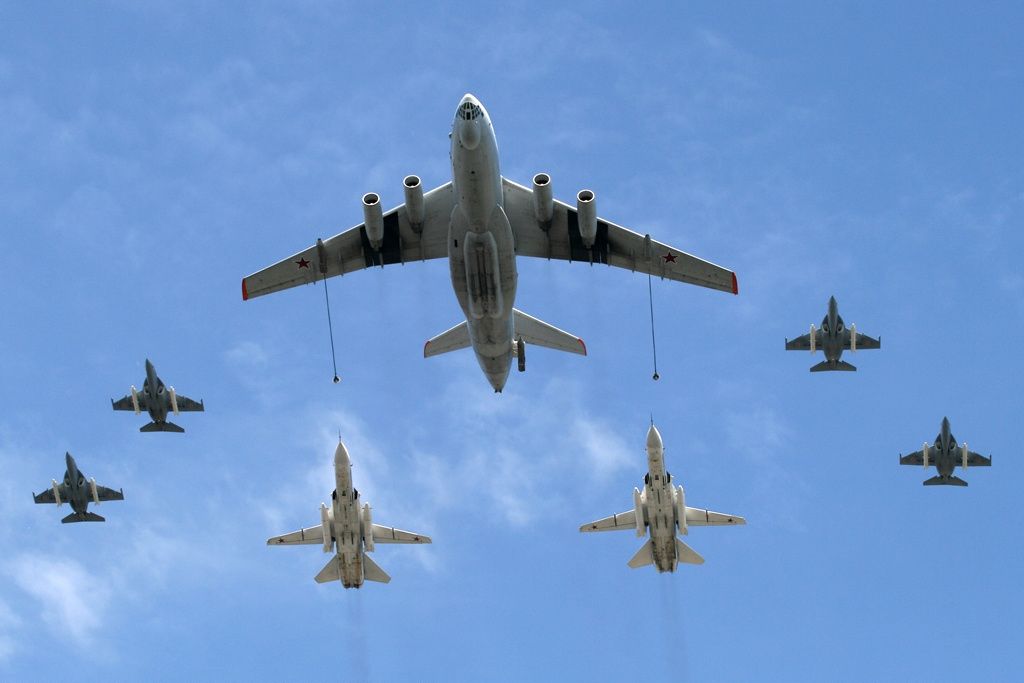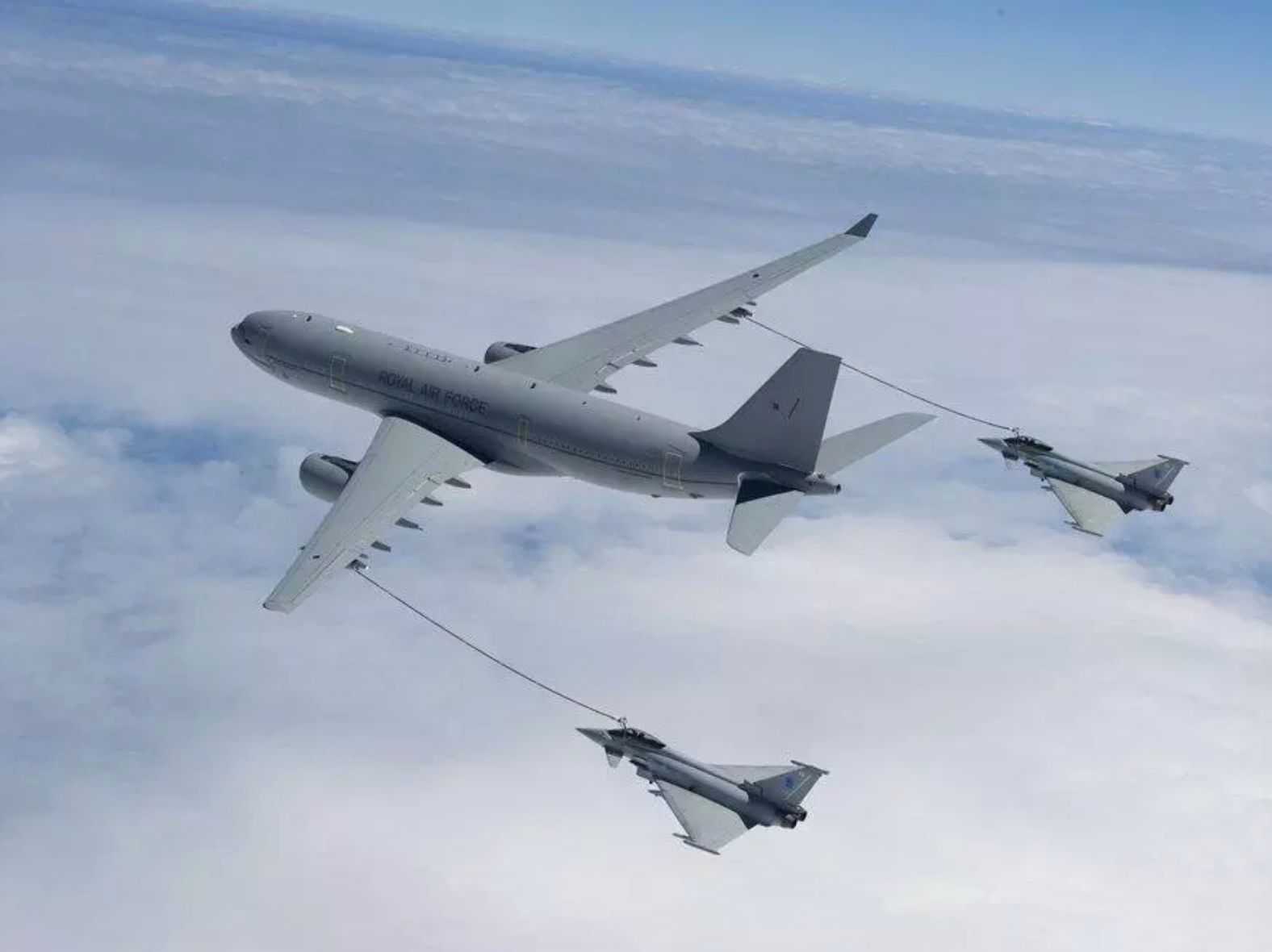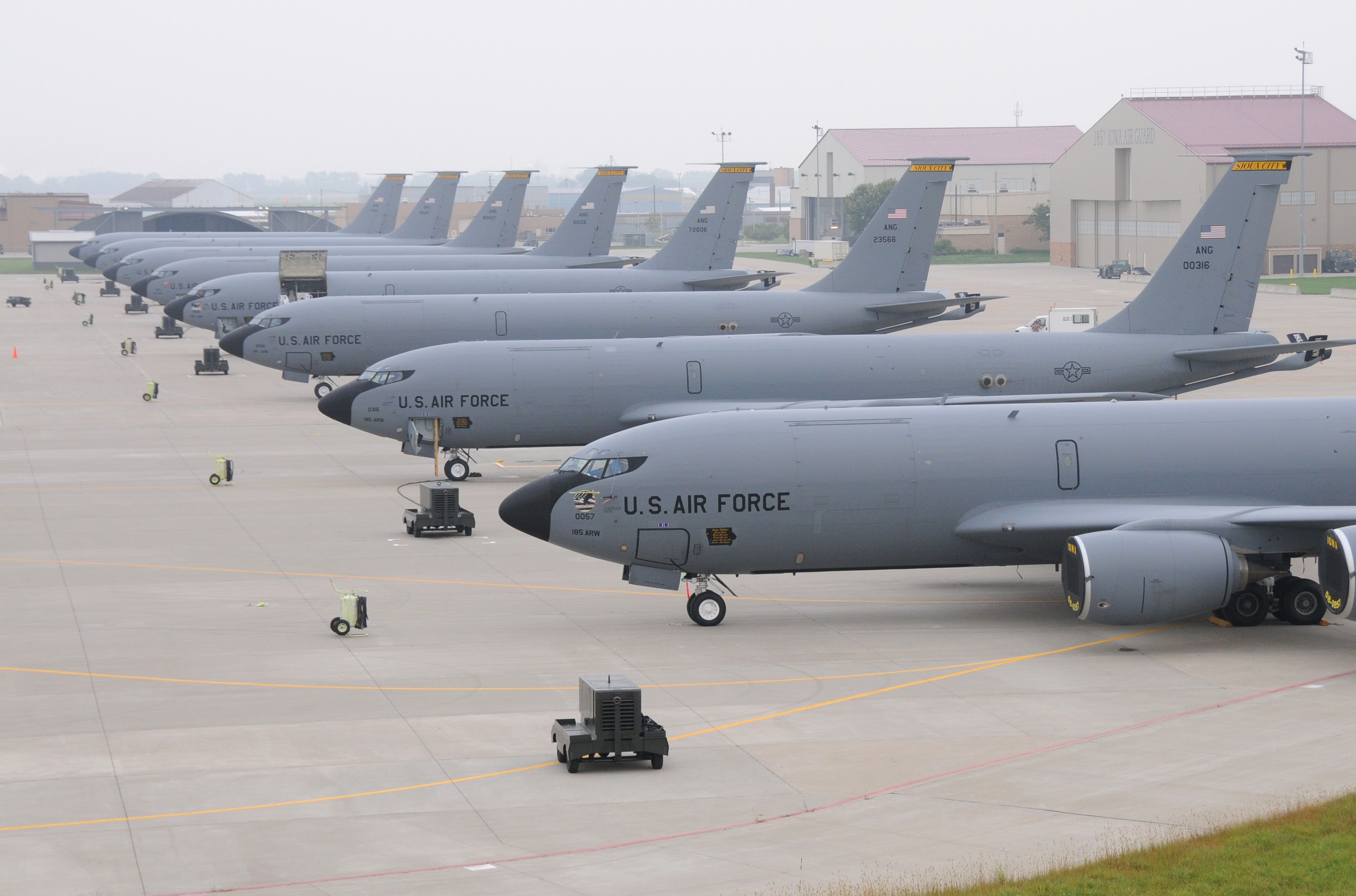No air force in the world is remotely close to being able to project power far and wide like the United States Air Force
(
except for the US Navy/Marines air forces as they operate the world’s greatest fleet of aircraft carriers
). To be able to project air power a meaningful distance from one’s own airspace, an air force must have aerial tankers and/or the use of foreign air bases (or aircraft carriers). According to FlightGlobal, the US Air Force possesses 75% of
the world’s aerial tanker fleet
, meaning when it comes to in-air refueling
, there’s the US and the rest.
5
Israeli Air Force
The Israeli Air Force possesses 14 tankers
|
Type: |
Boeing 707, KC-130H |
|---|---|
|
Percentage of world’s total: |
2% |
|
Fighter jets: |
F-15, F-16, F-35I |
Israel possesses 14 tankers (assuming
none were damaged or destroyed in the hangar of the recent Iranian missile attack
). These are seven Boeing 707 tankers and seven KC-130H Hercules aircraft. Israel also has a few KC-46A Pegasus tankers on order from the United States. It is unclear if Israel’s fleet of F-35 fighter jets can be refueled by the KC-130H tankers (if not, then the fighters would be limited to seven Boeing 707 tankers in any raid on Iran).
After Israel, FlightGlobal (surprisingly) listed Singapore as sixth with 11 tankers, followed by China (10 tankers), the UK (9 tankers), Italy (8 tankers), and Japan (8 tankers) rounding out the top 10 list. The rest of the world possesses 81 tankers (around 10% of the global fleet). Note that some air forces can draw on more tankers operated by civilian contractors (e.g., the UK can call on the contractor AirTanker Services for another 5 tankers, bringing the total to 14 tankers).
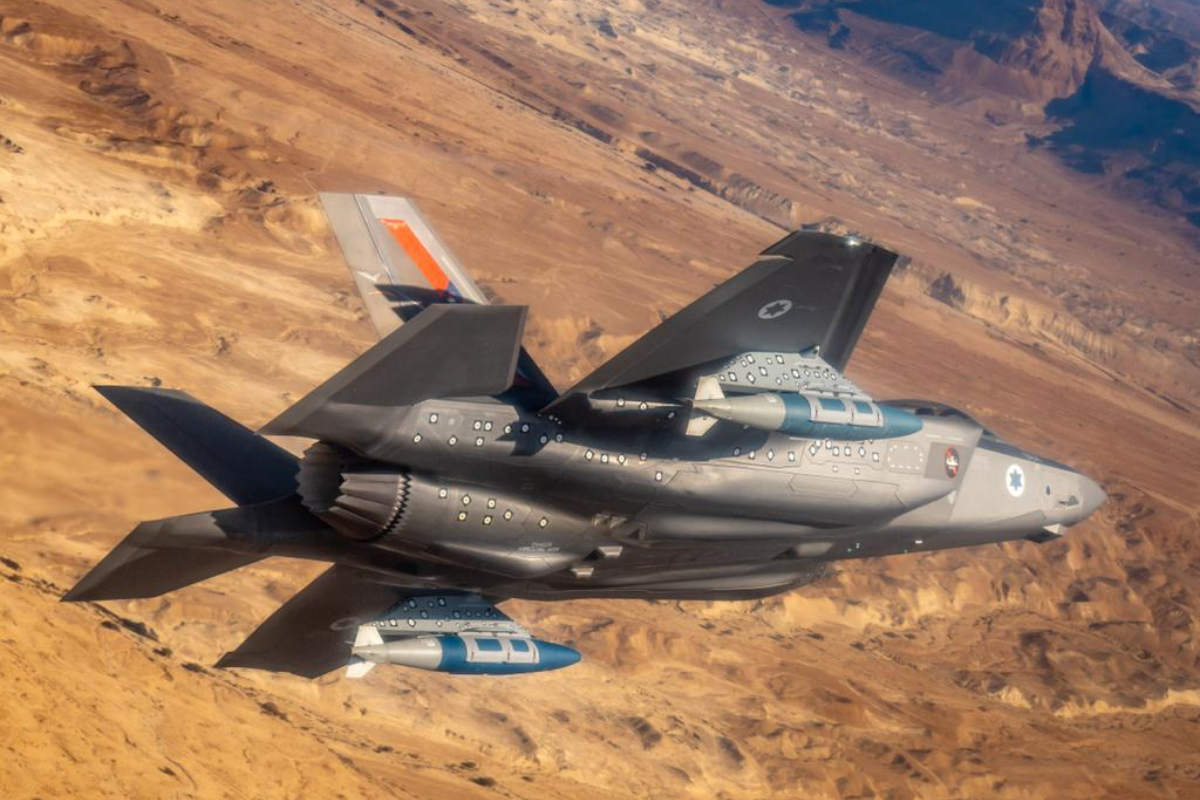
Related
Top 4: The Most Powerful Air Forces Engaged In The Israel-Iran Conflict
The US Air Force(s) and Israeli Air Force remain the most powerful air forces engaged in the current Iranian-Israeli conflict.
4
French Air Force
The French Air Force possesses 14 tankers
|
Type: |
A330 MRTT, KC-135, KC-130J |
|---|---|
|
Percentage of world’s total: |
2% |
|
Fighter jets: |
Rafale, Mirage 2000 |
The French Air Force operates a fleet of 10 Airbus A330 MRTT tankers (the largest European-built military tanker), 5 Boeing KC-135 Stratotankers, and two Lockheed Martin KC-130 tankers for a total of 17 tankers. The French Air Force also has another three A330 MRTTs on order (these are built on the Airbus A330-200 airliner).
France’s air power projection is also aided by being able to use a number of airbases around the world, its sole nuclear-powered aircraft carrier, and three Mistral-class helicopter docks. In this regard, it is similar to the British, who also have two conventionally powered aircraft carriers and the use of various airbases in the world.
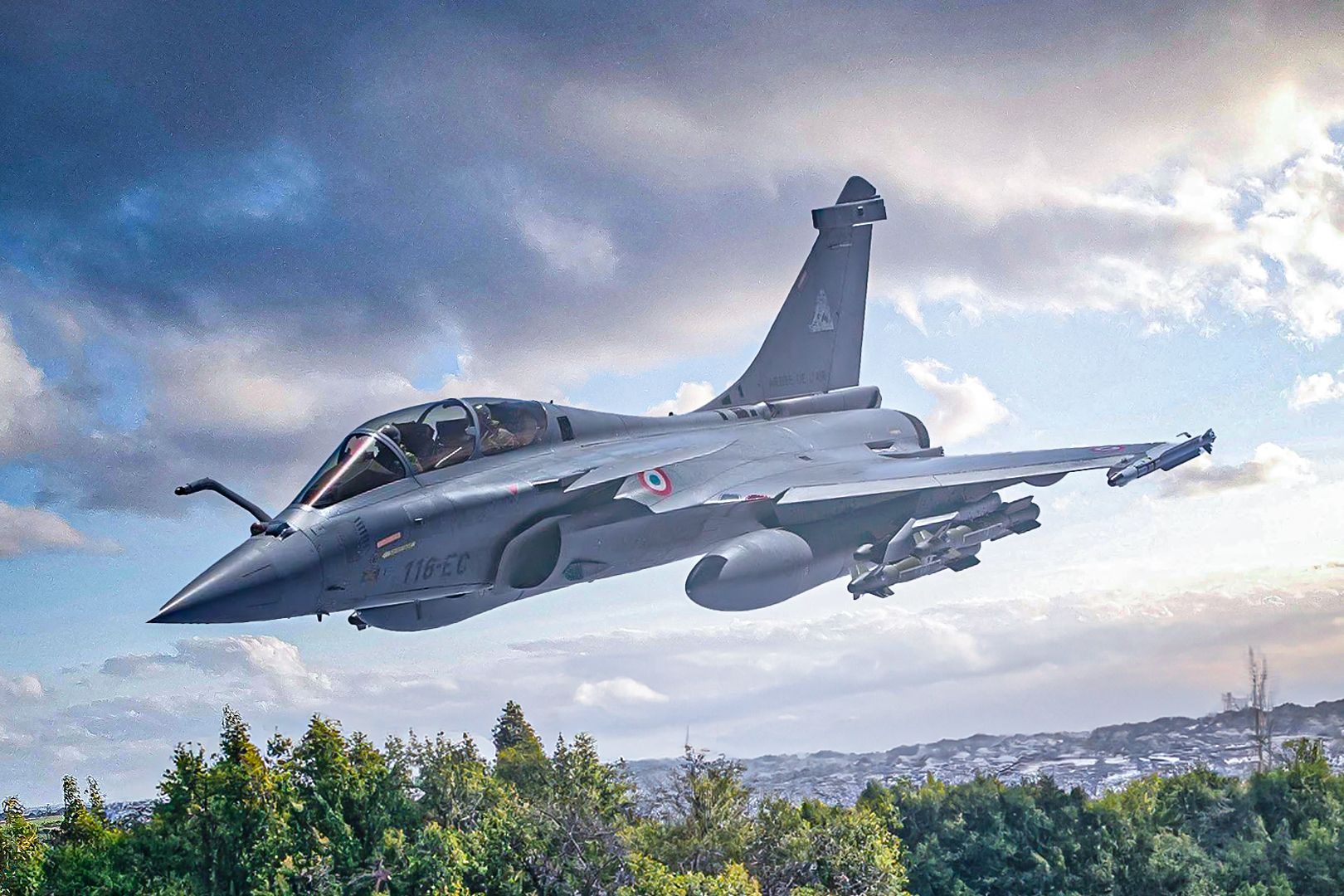
Related
Faire Face: The Top 5 Aircraft Of The French Air Force
The motto of the French Air Force is ‘Faire face’ – to face things honestly and directly. Let’s explore their top military aircraft.
3
Russian Air Force
The Russian Air Force possesses 19 tankers
|
Type: |
Illyushin Il-76 |
|---|---|
|
Percentage of world’s total: |
3% |
|
Fighter jets: |
Su-27 family (Su-30, 34, 35), MiG-31, Su-57, Su-25, MiG-35, Su-24 |
The Russian Air Force
relies on a fleet of 19 Ilyushin Il-78 tankers (NATO Midas). These are Soviet/Russian aerial refueling tankers based on the Illyushin Il-76 strategic airlifter. One tanker may have been destroyed on the ground in Ukraine, with open source intelligence debating if the wreck visible from satellite imagery was an Il-78 or Il-76.
Russia’s small fleet of tankers is a key part of the (on-paper large) Russian Air Force’s inability to project power much beyond its borders (it sustains operations in Syria mostly thanks to the use of an airforce base there). Russia’s tanker fleet is primarily concerned with sustaining its strategic bomber patrols.
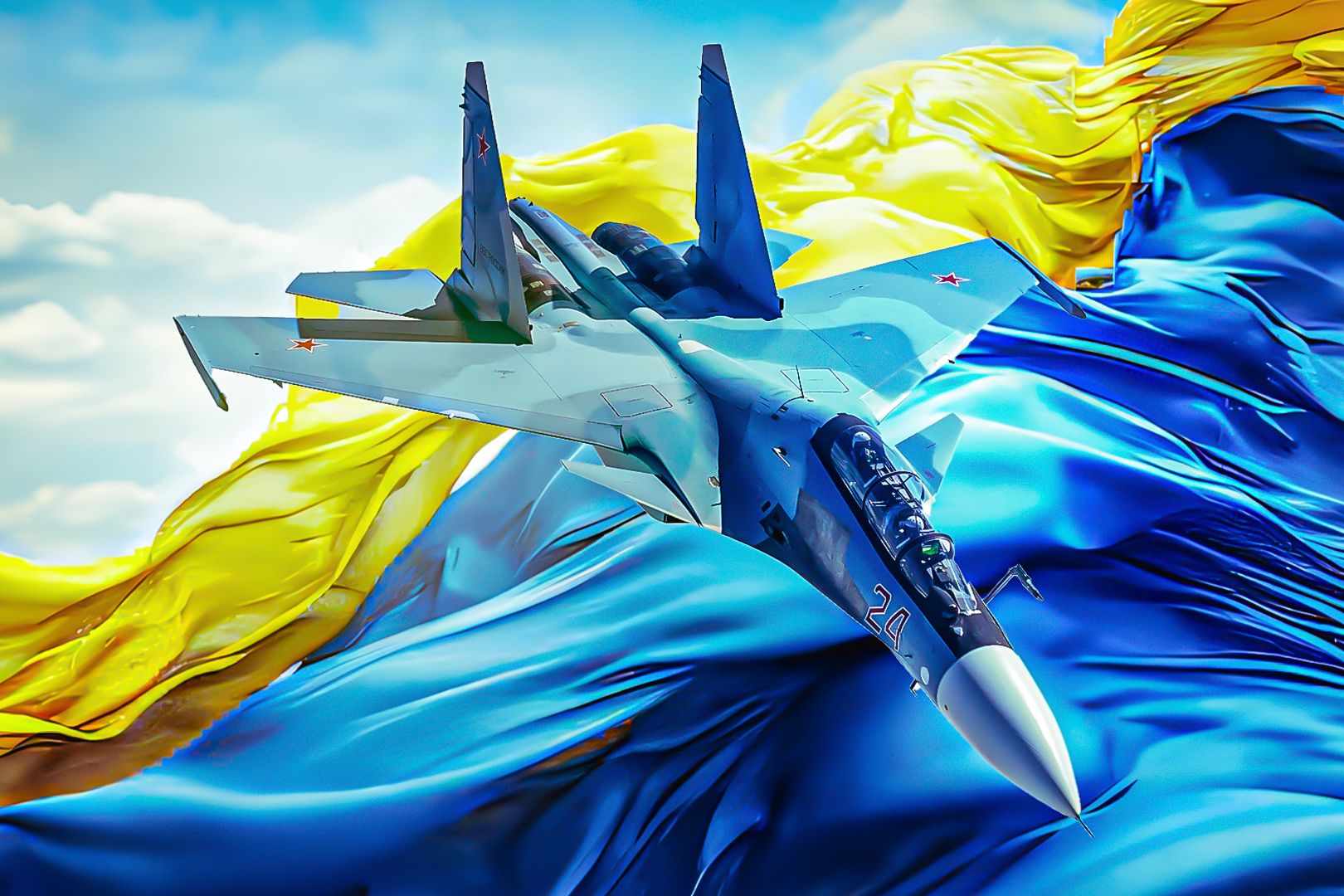
Related
Why The Russian Air Force Fighter Fleet May Be Down 25% Since Ukraine Invasion
The Russian Air Force may be hollowing itself out from the inside faster than Ukraine is destroying it from the outside.
2
Saudi Arabia Air Force
The Saudi Arabian Air Force possesses 22 tankers
|
Type: |
Boeing 707, KC-130H, KC-130J, A330 MRTT |
|---|---|
|
Percentage of world’s total: |
3% |
|
Fighter jets: |
Eurofighter Typhoon, F-15, Tornado |
It may come as a surprise to many that FlightGlobal lists the Royal Saudi Arabian Air Force as having more tanker aircraft than Russia and China. The Saudi Air Force possesses seven Boeing 707 (KE-3A) aircraft, six KC-130H tankers, seven KC-130J tankers (with another three on order), and seven European Airbus A330 MRTT tankers.
Photo: Airbus
The famous American KC-135 Stratotanker aerial refueling tanker is also based on the Boeing 707. The Boeing 707 was the world’s first jetliner and first flew in 1954, entering service in 1958 with Pan Am. The platform is aging but remains a humble mainstay of in-air refueling (the US Air Force is mulling keeping the KC-135 in service for longer).
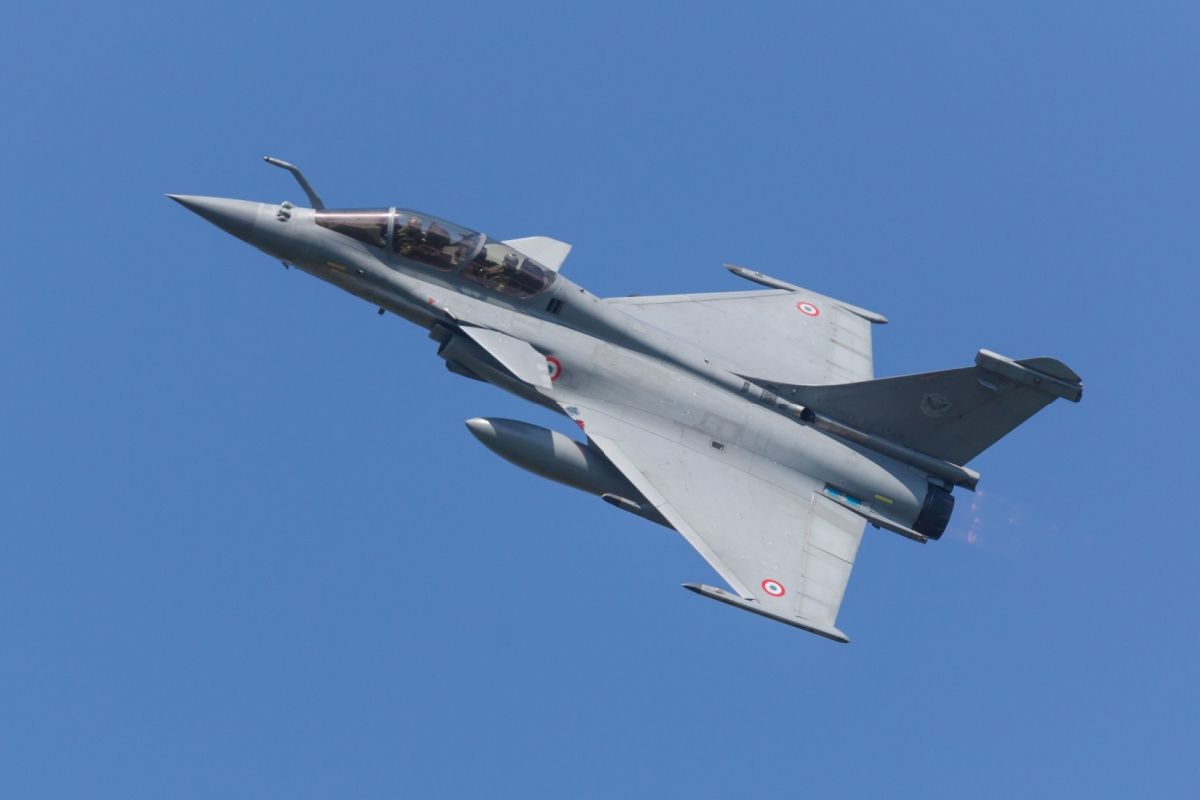
Related
Typhoons Or Rafales? Examining Saudi Arabia’s Potential Fighter Jet Order
Saudi Arabia may be considering ditching its Eurofighter Typhoon order for a large order of Rafales.
1
United States Air Force
The United States Air Force possesses 606 tankers
|
Type: |
KC-135 Stratofortress, KC-46A Pegasus, MC-130J |
|---|---|
|
Percentage of world’s total: |
75% |
|
Fighter jets: |
F-16, F-15, F-22, F-35 |
With around 75% of the world’s tanker fleet, the USAF is without peer and is able to sustain missions and project power far beyond its borders in a way no other country comes remotely close to matching. The Chinese Air Force may be growing quickly, but it is (currently) largely unable to project significant power far beyond its borders.
Photo: US Air Force
As the USAF is constantly buying and retiring tankers, the number in service is likely different form the 606 listed by FlightGlobal (e.g. it lists 20 KC-10 Extenders in service, but these have now been retired). The US Air Force is also requesting funding to purchase another 15 KC-46A Pegasus tankers in the FY 2025 budget.
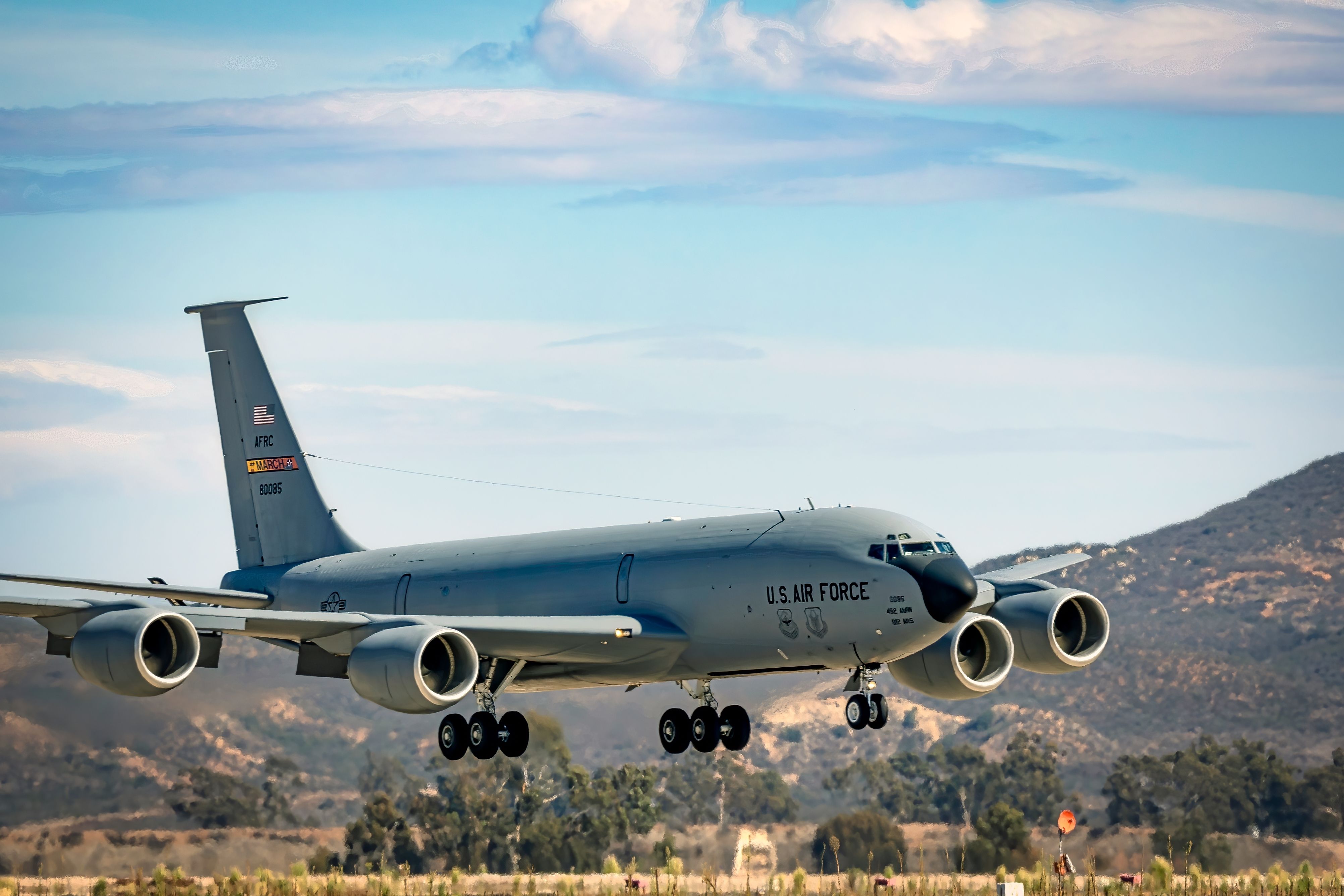
Related
US Air Force Weighs Cancelling KC-135 Stratotanker Replacement In Favor Of Next-Gen Tanker
A new next-gen tanker is hoped to enter service in the mid-2030s.

